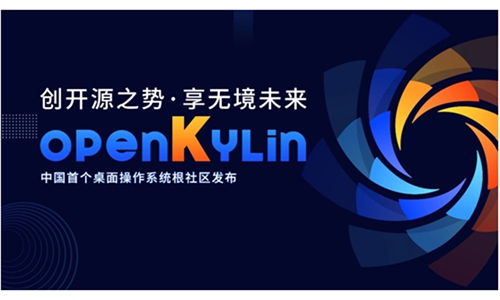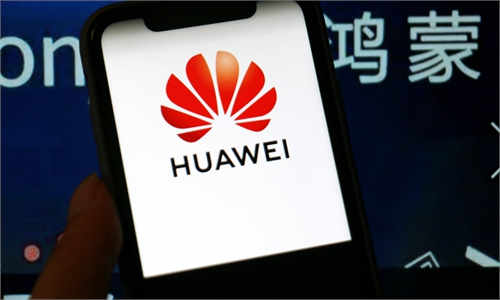China accelerates R&D in homegrown operating systems, with Huawei leading industrial player

Photo: Courtesy of Huawei
As China ramps up efforts to develop its homegrown operating systems (OS) for a wide range of digital gadgets, Huawei's OpenEuler OS is becoming the first choice for digital transformation, creating a solid software base for the country's digital infrastructure.
During an OS industry summit on Wednesday, Wang Tao, executive director of Huawei and director of the company's ICT Infrastructure Business Management Committee, said that by the end of December 2022, the number of enterprise members in the open source Euler community has exceeded 600.
The cumulative number of installed commercial deployments has reached three million sets in industries across finance, transportation and telecom. In the new market of server OS in China, Euler's market share has reached 25 percent.
OpenEuler is designed for enterprise customers and can be used in devices such as servers, cloud computing and edge computing. Last year, Huawei launched the OS and donated it to the OpenAtom Foundation, a major open source platform in China.
Sun Wenlong, Secretary General of the OpenAtom Foundation, said during the summit that the foundation will help open source projects such as Euler to generate greater value by synchronously advancing local development and overseas expansion strategies, and exploring establishment of overseas institutions in Europe, Southeast Asia and other regions.
"China is entering a new stage of open source innovation, from participation and integration to making preparations for leadership," said Wang Huaimin, a fellow at Chinese Academy of Sciences.
"The rising open source industry needs a powerful open source innovation platform, and it is necessary to build a distributed, intelligent and international next-generation open source innovation platform for the future," Wang said in a keynote speech.
Within the domestic OS sector, open source has become more mature after years of development, industry insiders said.
Jiang Dayong, director of the OpenEuler Community, said that "our perception of open source has changed a lot. A few years ago, in China, we only used the open source, but now we have gradually contributed to open source or even tried to lead the sector."
Recognition of the value of open source business model has deepened, which is also a big change, Jiang said, although, there is still a gap between China and overseas in terms of market recognition.
"If you compare software with hardware, you can find that hardware's business value is more highly recognized in the market. We hope that the recognition of software value can be improved," he added.
Homegrown operating systems are considered key to serving as a pillar for driving construction of new infrastructure and boosting development of the digital economy, with China a leading player in the sector.
In June, China's first root community of desktop operating systems, Openkylin, was rolled out by China Electronics Corporation, National Industrial Information Security Development Research Center and other institutions.
OpenKylin is expected to foster closer industrial chain cooperation. It will promote the continuous development of OS technology and provide reliable basic software services for China's industrial chain and even global IT facilities.
Global Times



